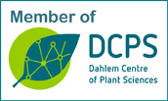Nitschke, S., Cortleven, A., Schmülling, T. (2017) Novel stress in plants by altering the photoperiod. Trends in Plant Sci. 22, 913-916. https://doi.org/10.1016/j.tplants.2017.09.005
Roeber, V.M., Bajaj, I., Rohde, M., Schmülling, T., Cortleven, A. (2021) Light acts as a stressor and influences abiotic and biotic stress responses in plants. Plant Cell Environ. 44, 645-664. https://doi.org/10.1111/pce.13948
Roeber, V.M., Schmülling, T., Cortleven, A. (2022) The photoperiod: handling and causing stress in plants. Frontiers in Plant Science 12, 781998. https://doi.org/10.3389/fpls.2021.781988
Nitschke, S., Cortleven, A., Iven, T., Feussner, I., Havaux, M., Riefler, M., Schmülling, T. (2016) Circadian stress regimes affect the circadian clock and cause jasmonic acid-dependent cell death in cytokinin-deficient Arabidopsis plants. Plant Cell 28, 1616-1639. https://doi:10.1105/tpc.16.00016.
Abuelsoud, W., Cortleven, A., Schmülling, T. (2020) Photoperiod stress induces an oxidative burst-like response and is associated with increased apoplastic peroxidase and decreased catalase activities. J. Plant Physiol., 153252. https://doi.org/10.1016/j.jplph.2020.153252
Frank, M., Cortleven, A., Novak, O., Schmülling, T. (2020) Root-derived trans-zeatin cytokinin protects Arabidopsis plants against photoperiod stress. Plant Cell Environm. 43, 2637–2649. https://doi.org/10.1111/pce.13860
Frank, M., Cortleven, A., Schmülling, T. (2022) The response to photoperiod stress in Arabidopsis thaliana depends on auxin acting as an antagonist to the protectant cytokinin. International Journal of Molecular Sciences 23, 2936. https://doi.org/10.3390/ijms23062936
Cortleven, A., Roeber, V.M., Frank, M., Bertels, J., Lortzing, V., Beemster, G., Schmülling, T. (2022) The transcriptomic landscape of the photoperiodic stress response in Arabidopsis thaliana resembles the response to pathogen infection. Frontiers in Plant Science 13, 838284. https://doi.org/10.3389/fpls.2022.838284
- Chemical priming of the plant stress response by cytokinin arabinosides
Cytokinin arabinosides (CK-A) are structurally similar to the plant hormone cytokinin but lack its growth regulatory activity. CK-As can induce pathogen-associated molecular patterns triggered immunity (PTI) in Arabidopsis thaliana (Bryksova et al., ACS Chem. Biol. 15, 1949–1963, 2020), indicating that CK-As might act as a chemical priming agent. Priming is the response of organisms to transient environmental (priming) stimuli in a way that prepares them for a better response to future stress. Priming may be caused by naturally occurring abiotic or biotic stresses; however, it can also be induced by chemicals. We are studying the ability of CK-As to prime Arabidopsis for defense against the hemibiotrophic pathogen Pseudomonas syringae pv. tomato DC3000 (Pst) and aim to elucidate the molecular mechanisms underlying priming by CK-As. This project is carried out by Martin Hönig (FEBS fellowship) in collaboration with the Department of Chemical Biology, Palacký University Olomouc.

Chemical structure of a
cytokinin arabinoside (CK-A).


